ADDITIONAL SAS AWARDS
For complete historical lists of all SAS Award Winners, and how to nominate individuals for awards, visit the SAS website.
Honorary Membership Award
This award is established to recognize individuals for their exceptional contributions to the field of spectroscopy and is the highest award given by SAS. The Award consists of an engraved plaque and a lifetime membership in the Society. This membership shall include all the privileges and rights of a regular member. The award shall be presented at the Society for Applied Spectroscopy award ceremony held at the fall meeting. Regional, Technical and or Student Sections, individual members, the Awards Committee, or the Executive Committee may make nomination for the Honorary Membership Award. Nomination material should include a letter of recommendation with supporting documentation regarding the nominee’s contributions to the field of spectroscopy, a current CV, and short bio. Submission deadline December 1.
Past Recipients
2022 S. Michael Angel
2021 Rina Dukor
2020 Laurence A. Nafie, Yukihiro Ozaki
2019 John F. Jackovitz, Isiah Warner
DISTINGUISHED SERVICE Award
This award is established to recognize individual members for their long- time service to the Society. The Award consists of an engraved plaque and a lifetime membership in the Society. This membership shall include all the privileges and rights of a regular member. The award shall be presented at the Society for Applied Spectroscopy award ceremony held at the fall meeting. Nomination for the Distinguished Service Award may be made by Regional, Technical and or Student Sections, individual members, the Awards Committee, or the Executive Committee. Nomination material should include a letter of recommendation with supporting documentation regarding the nominee’s contributions to the Society for Applied Spectroscopy and spectroscopy, a current CV, and short bio. Submission deadline December 1.
2023 Award Recipients
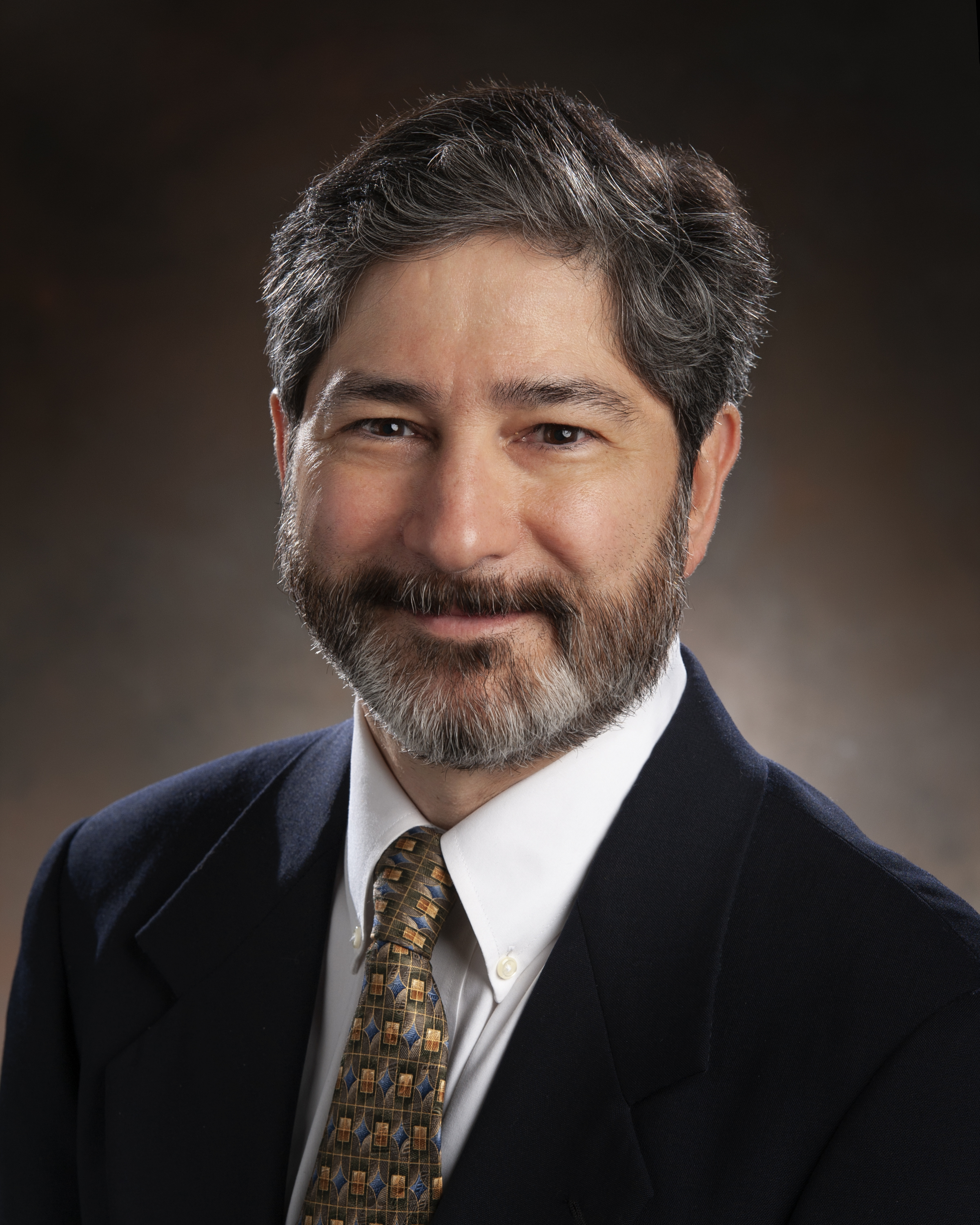 Robert J. Lascole
Robert J. Lascole
Recognizing Dr. Robert J. Lascola for exceptional contributions over many years to the Society for Applied Most notably, he served as both President and Secretary overseeing the growth and continued success of the Society. Additionally, Dr. Lascola provided SAS with leadership through multiple committee chairmanships and Governing Board service.
Rob Lascola is a Senior Fellow Scientist and group leader for online monitoring at Savannah River National Laboratory in Aiken, SC, where he has worked since 1998. He received his B.S. with High Distinction from the University of Virginia, M.S. from the University of Colorado, and Ph.D. from the University of Wisconsin-Madison, all in Chemistry. His Ph.D. thesis work on nonlinear optical properties of charged fullerenes, done under the guidance of Prof. John Wright, was recognized with several awards, including the ACS Division of Analytical Chemistry Graduate Fellowship.
At SRNL, Rob’s primary focus has been the development and installation of process analytical technologies to measure actinides, hydrogen isotopes, and process offgas composition in nuclear materials processing and radiological containment facilities. He also works with SRNL colleagues on diverse topics including actinide chemistry and processing flowsheet development, energy storage, and dissolution kinetics. He has co-authored over 60 papers and technical reports, and is proud to have been recognized both by SRNL and multiple production divisions at Savannah River Site for his contributions.
Rob has served SAS as President, Secretary, Governing Board member, Regional and Section Affairs Coordinator, and as a member of several committees. He has also been a SciX Program Chair, Forensics Section Chair/co-Chair, and session organizer. He enjoys mentoring and contributes to Coblentz Society and SAS outreach as well as early career programs affiliated with the Department of Energy. He also has volunteered for 25 years for the DOE National Science Bowl at the regional and national levels.
Past Recipients
2022 Howard Mark
2021 Richard Crocombe, Ewelina Miztek-Morabito
2020 Mary Kate Donais, Paul N. Bourassa
2019 Michael Blades, Deborah Peru
EMERITUS MEMBERSHIP AWARD
Recognizing members who have contributed to spectroscopy and have been members of the Society for Applied Spectroscopy for 15 years, and now have retired from active scientific endeavor. The Award consists of an engraved plaque and a lifetime membership in the Society. This membership shall include all the privileges and rights of a regular member. The award shall be presented at the Society for Applied Spectroscopy award ceremony held at the fall meeting. Nomination for the Emeritus Membership Award may be made by Regional, Technical and or Student Sections, individual members, the Awards Committee, or the Executive Committee. Nomination material should include a letter of recommendation with supporting documentation regarding the nominees contributions to the Society for Applied Spectroscopy and spectroscopy, a current CV, and short bio. Submission deadline December 1.
2019 No Award Given
Past Recipients
2022 No Award Given
2021 Stephen Bialkowski
BARBarA STULL GRADUATE STUDENT AWARD
This award is given to a graduate student(s) in honor of longtime SAS employee Barbara Stull in recognition of outstanding research in the area of spectroscopy. Any full-time graduate student doing research in the field of spectroscopy shall be eligible for the award. The recipient shall be selected by the Awards Committee. The award shall consist of a plaque or scroll and an expense-paid trip to FACSS to accept the award. Nominations may come from any individual. Nomination material should include at least one letter of recommendation along with supporting documentation on research, a current CV, and short bio. Submission deadline March 1.
2023 Award Recipient
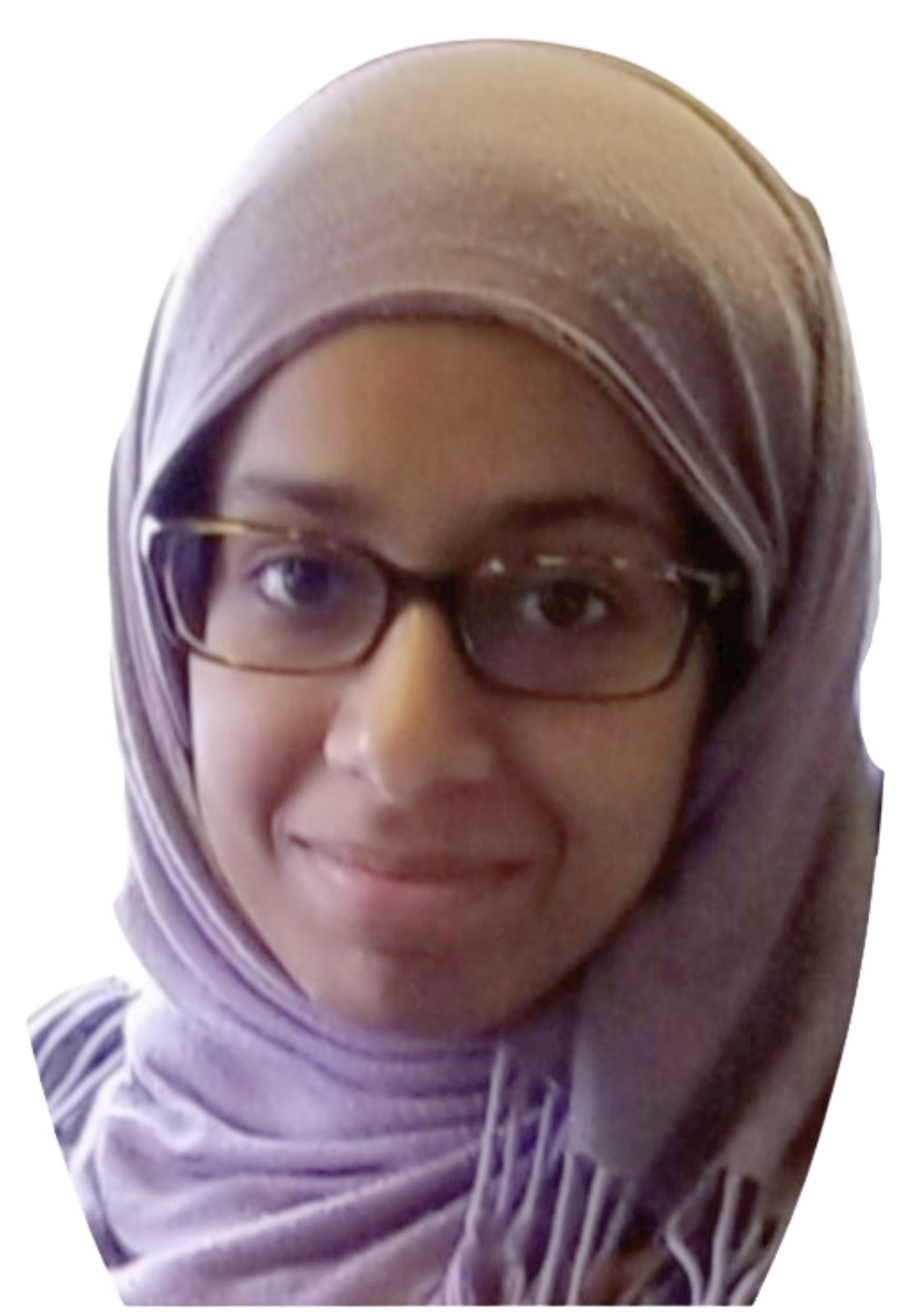 Lamyaa M. Almehmadi
Lamyaa M. Almehmadi
Recognizing a well-rounded CV – which included extracurricular activities such as mentoring, volunteering, and teaching – and exemplary demonstration of scientific accomplishments in the field of spectroscopy via research, publications, and presentations.
Lamyaa M. Almehmadi is a Ph.D. candidate in Professor Igor K. Lednev at the University at Albany, State University of New York. She received her B.S. in Chemistry with an emphasis on Chemical Biology and an M.S. degree in Chemistry from the University at Albany, completing her master's thesis in only one year. Lamyaa’s Ph.D. research focuses on using enhanced Raman spectroscopy techniques for drug discovery, mRNA vaccine stability assessment, and forensic purposes. Lamyaa has received several awards, including the 2023 Rising Star in Analytical Chemistry award from the ACS ANYL Division and the prestigious Coblentz student award. She was elected president of a local Society for Applied Spectroscopy chapter for two consecutive years and has chaired and co-chaired a symposium and conference sessions. This Fall, Lamyaa will be joining the Department of Materials Science and Engineering at the Massachusetts Institute of Technology (MIT) as a post-doctoral fellow and will work under the mentorship of Prof. Juejun Hu in the Photonic Materials Group. Her upcoming research will revolve around utilizing on-chip photonic sensors.

Thulya Chakkumpulakkal Puthanveettil
Recognizing a well-rounded CV – which included extracurricular activities such as mentoring, volunteering, and teaching – and exemplary demonstration of scientific accomplishments in the field of spectroscopy via research, publications, and presentations.
Thulya is pursuing a joint PhD degree in analytical chemistry from Monash University, Australia, and the University of Bath, United Kingdom, under the guidance of Prof. Bayden R. Wood (Monash University), Dr. Paul De Bank (University of Bath), Dr. Keith Bambery (Australian Synchrotron), and Prof. Karen J. Edler (Lund University, Sweden). In her PhD, Thulya has been working on a highly multidiscipline project combining microfluidics, spectroscopy and machine learning modelling to develop new diagnostic tests for blood and water borne pathogens particularly focusing on malaria parasites, leishmania parasites and bacteria.
During her PhD career, her work has been acknowledged on several occasions. She has published ten articles in internationally reputed journals, five of which are first author articles. She has been able to secure a highly prestigious Postgraduate Research Award from the Australian Institute of Nuclear Science and Engineering (AINSE) to conduct impactful research on malaria diagnosis at the Australian Nuclear Science and Technology Organisation (ANSTO) facilities. This top-up award provides additional funding to support experiments at ANSTO facilities such as Australian synchrotron. In addition to this, she has been awarded an AINSE Technical Skills Scholarship for developing advanced machine learning skills to support her research on malaria diagnosis. She has been awarded the following accolades: The Association of British Spectroscopists Trust (ABS Trust) Student Bursary Award for 2023, a Research Development Grant from the Royal Society of Chemistry, study away travel grant from Monash University, Doctoral Recognition Award for 2023 from the University of Bath, and the Coblentz society student award 2023.
Past Recipients
2021 Jeremy Schultz
2020 Ewelina Mistek-Morabito
2019 Santosh Paidi, Saumya Twari
Bruce R. Kowalski Award in Chemometrics
Presented in honor of the legacy of Professor Kowalski by recognizing outstanding young researchers in the field of chemometrics and by extension, for advanced mathematical and/or statistical methods in chemistry. Click for more details.
Past Recipients
2022 No Award Given
2019 No Award Given
William J. Poehlman Award
This award is granted to the Regional Section of the Society, which has contributed the most towards accomplishing the goals and ideals of the Society during the preceding year. It consists of a certificate and a monetary award of $750.00. Regional Sections must provide a nomination packet that includes information on local section activities and a letter outlining why the feel they are deserving of the award. The recipient shall be selected by the Regional and Technical Section Affairs Committee. Submission deadline March 1.
2023 Award Recipients
New York Capital Region Student Section
The section was chosen for its efforts to facilitate engagement via social events (video games, ice cream socials, scavenger hunts) and planned programming throughout the year, that balances both academic and social interaction among students.
The New York Capital Region student chapter of the Society for Applied Spectroscopy encompass universities and colleges in the Albany Area.
Past Recipients
2022 Spectroscopy Society of Pittsburgh
2020 University of Puerto Rico Mayaguez
2019 SAS New York-New Jersey Regional Section
FELLOWS
This award is established to recognize individual members for their outstanding achievements in and contributions to the science, the profession, and the Society for Applied Spectroscopy. The award consists of a plaque and recognition at the SAS annual meeting. Up to 12 Fellows per year may be selected. Nomination for the award of Fellow must be made by current SAS Fellows, the Executive Committee, the Governing Board, or the Fellows Committee. The Fellows committee shall review all nominations and shall forward the award slate to the SAS Executive Committee for final approval. Fellows must continue to be members in good standing of the Society in order to maintain Fellow status. All Honorary Members of the Society shall be granted Fellowship automatically. Submission deadline December 1st.
2023 Award Recipients
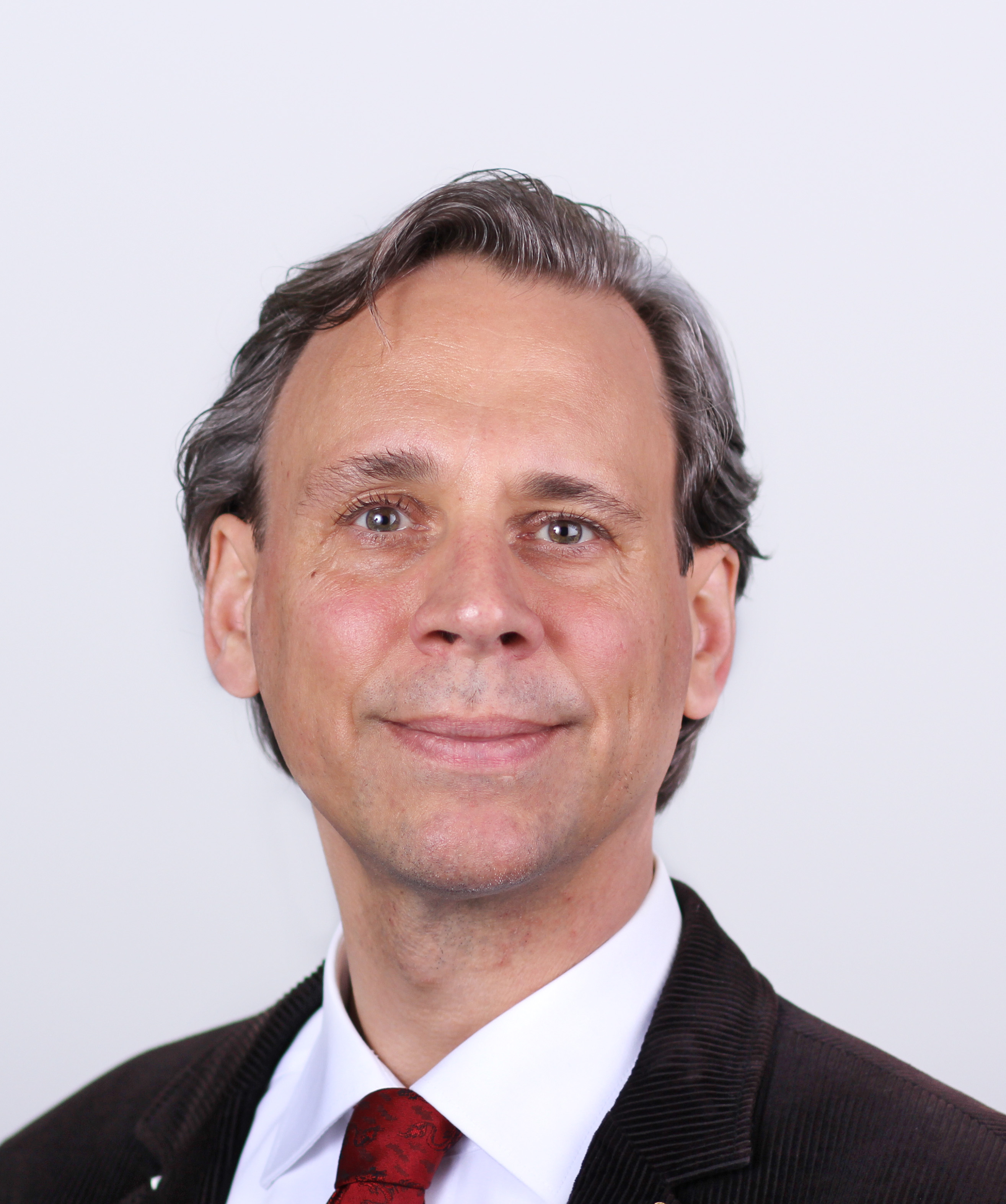 Sebastian Schlücker
Sebastian Schlücker
Sebastian Schlücker (born 1973) is a professor of physical chemistry at the University Duisburg-Essen (UDE) in Essen, Germany. He studied chemistry at the University of Würzburg where he also obtained his PhD in the field of linear and nonlinear Raman spectroscopy. After postdoctoral work at the laboratory of chemical physics, NIDDK, NIH in Bethesda on Raman imaging in biomedical research and his habilitation he became associate professor of experimental physics at the University of Osnabrück in 2008 before joining UDE in 2012.
His research interests are the development and applications of innovative laser spectroscopic techniques with a focus on selectivity and sensitivity as well as the physics and chemistry of molecularly functionalized plasmonic nanoparticles for applications in biomedicine (diagnostics and therapy) and chemical energy conversion (catalysis, plasmonic chemistry).
Sebastian received numerous awards for his scientific work. Examples of awards from the German Chemical Society (GDCh) include the Carl-Duisberg Memorial Award, the Bunsen-Kirchhoff Award and an ADUC Award. Last year, he received the ICORS 2022 Award for the most innovative technological development.
He serves as deputy director of the Center for Nanointegration Duisburg-Essen (CENIDE) and as a member of the International Steering Committees of the International Conference on Raman Spectroscopy (ICORS) & International Conference on Enhanced Spectroscopies (ICES). In 2018 he was elected as a Fellow of the Royal Society of Chemistry (FRSC). He is the founder of NanoWerke for high-quality SERS particles and initiated experimentamus! for inquiry-based learning with STEM experiments in primary schools.
 Gloria M. Story
Gloria M. Story
Gloria Story received her A.S. in Science Technology from the University of Cincinnati - Blue Ash (1981) and worked towards a B.S. in Chemistry from UC and the University of Utah. She is currently retired from the Procter & Gamble Company, where she was a Senior Scientist with the Corporate R&D Organization. She has over 40 years of experience in vibrational spectroscopy applications.
With over 25 years of membership in the Society for Applied Spectroscopy, Gloria is currently serving as President-elect. She served as Governing Board Delegate, Section Affairs Coordinator, Secretary, Membership Coordinator, Tour Speaker Coordinator, and workshop instructor at PittCon and SciX. She’s been an active member of the Coblentz Society for over 30 years, currently serving as a mentee in the Speed Mentoring program. An ACS member since 1994, she is currently serving as coordinator for her local section’s membership, Education Grants, undergraduate travel awards, and museum NCW programming.
Gloria Story has co-authored 28 research publications and presented over 25 oral presentations. She has received numerous awards including the SAS Distinguished Service Award (2015), the ACS Cincinnati Section’s Research Associate of the Year, Outstanding Service, and Outreach Volunteer of the Year Awards, the Procter & Gamble Company’s Global Analytical Community of Practice Recognition and Pete Rodriquez Analytical Excellence Awards, and the America Service to Youth Award from the Dan Beard Council of the Boy Scouts of America.
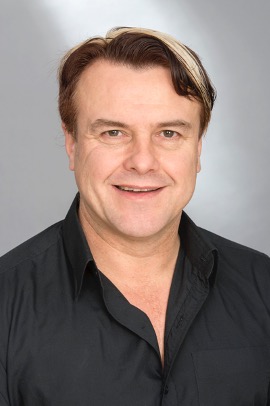 Bayden R. Wood
Bayden R. Wood
Prof. Bayden R. Wood completed his PhD in Chemistry in 1999. He has since pursued his research interest applying vibrational spectroscopy to biological/biomedical problems. In 2008, he was awarded an Australian Research Council QEII Research Fellowship and a Humboldt Fellowship, followed by an ARC Future Fellowship in 2012. Since 2015, he has headed the Monash Biospectroscopy Group pioneering the application of vibrational spectroscopy and chemometrics to investigate a range of biomedical and biological problems. The breadth of his research includes malaria diagnosis and treatment, cancer diagnosis, testing novel drugs for cancer treatment, kidney disease, sepsis diagnosis, stem cell research, heart disease, liver disease, phytoplankton studies, aquatic wetland, food and soil studies, ancient materials along with fundamental studies into how light interacts with cells. He was appointed to the position of Professor in 2019. He has over 200 peer reviewed publications and 12 book chapters with a H index =59, i10 index 146 with over 11,500 citations (source Google Scholar author profile). He is Co-Chief Editor for the Elsevier journal Clinical Spectroscopy and editorial board member for Applied Spectroscopy. He is a current Director of the CLIRSPEC network and sits on the steering committee of the International Conference on Raman Spectroscopy (ICORS) and also on the steering committee for the International Conference on Advanced Raman Spectroscopy (ICAVS). He has a number of industry collaborators including Si-Ware and Perkin-Elmer. He has a strong focus on translating spectroscopy to real world problems through his large academic and commercial network.
Past Recipients
2022 John Kalivas
2021 Christian Huck, Ellen Miseo, Lawrence Ziegler
2020 Matthew Baker, J. Chance Carter, Peter Harrington
2019 Young Mee Jung, David McCurdy, Boris Mizaikoff, Diane Parry, Shiv Sharma
EARLY CAREER INTEREST GROUP TRAVEL GRANT
Travel support for Early Career Scientists (within 5 years of earning a terminal degree) to SAS' National meeting during SciX. Awarded to Early Career scientists who demonstrate merit in the field of spectroscopy and/or those who demonstrate financial need.
2023 RECIPIENTS
 Hunter Andrews
Hunter Andrews
Hunter Andrews is an early career researcher in the Isotope Applications Research Group within the Radioisotopes Science and Technology Division at Oak Ridge National Laboratory (ORNL). Hunter received his PhD in Mechanical and Nuclear Engineering from Virginia Commonwealth University in the spring of 2020. He first joined ORNL as a post-doctoral researcher in 2020 and transitioned to his current role as an R&D Associate in the summer of 2021. Having been at Oak Ridge National Laboratory for the past 3 years, his research focus revolves around the development of in-situ, online monitoring tools for complex environments. His main expertise lies in applied optical spectroscopy, particularly laser-induced breakdown spectroscopy (LIBS), a rapid form of spectroscopy capable of elemental analysis regardless of sample form. Other research interests include chemometrics, machine learning, mass spectrometry, spectroelectrochemistry, and neutron imaging.
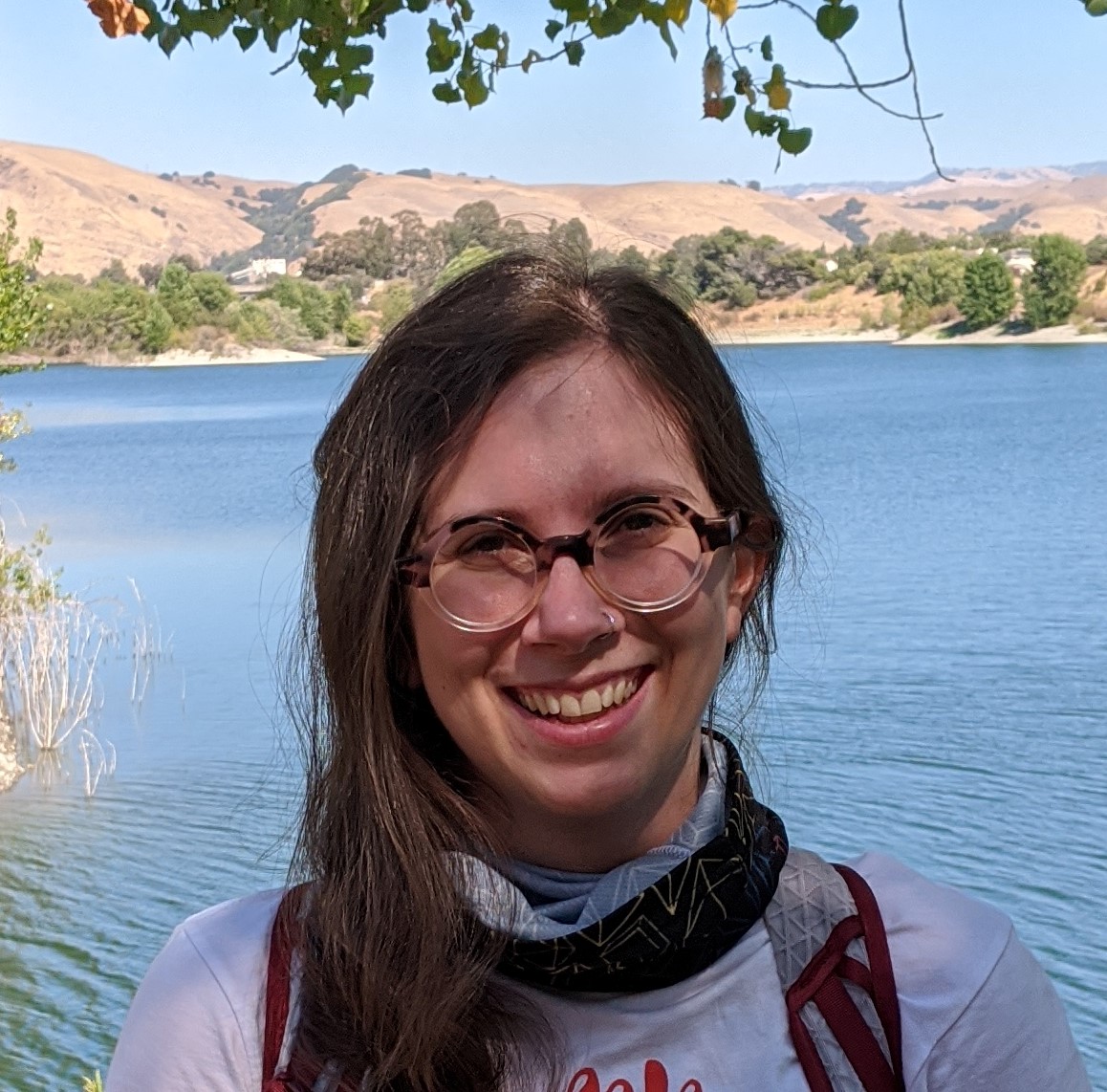 Stephanie Zaleski
Stephanie Zaleski
Stephanie Zaleski joined the Department of Chemistry & Biochemistry as an Assistant Professor at CSU East Bay in 2020. She obtained her B.A. in Biochemistry from Barnard College in 2011 and her Ph.D. in Chemistry from Northwestern University in 2016 working in the lab of Richard P. Van Duyne. She is an established researcher in the field of applied spectroscopy for art conservation and museum studies, as well as the application of SERS to chemical sensing problems. To date, Stephanie has published 14 peer-reviewed journal articles, focusing on topics ranging from the study single molecule electrochemistry by SERS to characterizing arsenic sulfide prints by Raman spectroscopy and SEM-EDS to date mid-19th century Japanese woodblock prints more accurately, as well as assessing the degree of deterioration in 19th-century glass by Visible-IR reflectance spectroscopy. Her current research interests at CSU East Bay include studying fundamental analyte-nanoparticle interactions to improve the use of SERS as an applied analytical technique and establishing an art conservation science research working group between universities, museums, and national laboratories in the San Francisco Bay Area.
Past Recipients
2021 Julia Gala de Pablo, Rupali Mankar

